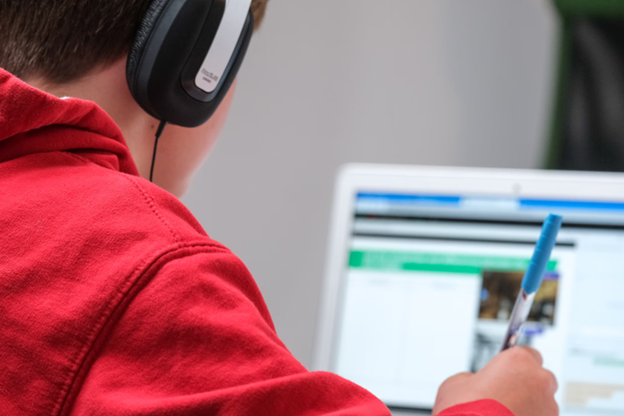The Internet increasingly exposes children to online platforms and digital technologies from a young age. While these tools offer incredible opportunities for learning, creativity, and social connection, they also come with risks and challenges.
For parents, educators, and caregivers, it is crucial to guide and support children in navigating the digital world responsibly. Encouraging positive online activities fosters healthy development and cultivates good digital citizenship.
This article explores the various strategies and tips for promoting positive online behaviors among kids.
Understanding Positive Online Activities
Understanding positive online activities for kids involves several vital aspects. These aspects contribute to their overall development and well-being in the digital world.
Here are the main components:
Educational content consumption
Educational content consumption includes engaging with online resources like educational websites, apps, and videos. These resources provide valuable learning experiences in various subjects.
Encouraging kids to explore educational content helps them acquire knowledge and skills interactively and engagingly.
Additionally, playing games like Spider Solitaire or Wordle are an excellent example of an engaging and educational online activity for kids. Not only is it a fun way to pass the time, but games like Spider Solitaire also promote critical thinking and problem-solving skills.
Creative expression
Positive online activities also involve using digital tools for creative purposes like creating art, music, stories, videos, or coding projects. Creative expression fosters imagination, innovation, and self-expression, promoting holistic development.
Safe social interaction
Teaching kids how to interact responsibly and safely with others online is crucial. That includes understanding the importance of privacy and respectful communication. It also covers recognizing and avoiding potential risks like cyberbullying or sharing personal information with strangers.
Critical thinking and media literacy
Helping children develop critical thinking skills and media literacy is essential in today’s digital environment. That involves teaching them to evaluate online information critically and discern credible sources from misinformation.
Additionally, it helps them understand the impact of media on perceptions and attitudes.
Positive digital citizenship
Instilling values of responsible and ethical behavior in digital environments is fundamental. This component includes respecting others online and being mindful of digital footprints. They must learn to contribute positively to online communities and understand the consequences of online actions.
Strategies for Encouraging Positive Online Activities
Encouraging positive online activities in children involves implementing effective strategies that promote responsible and beneficial digital engagement. Here are some techniques you can use:
Set clear guidelines and boundaries
Establish clear rules regarding screen time limits, appropriate online content, and safety measures. Involve children in discussions about these guidelines to promote understanding and cooperation.
Educate them about online safety
Teach children about online safety practices, including protecting personal information, recognizing and avoiding online risks like cyberbullying, and using privacy settings on social media and gaming platforms.
Foster open communication
Cultivate a supportive environment where children feel comfortable discussing their online experiences, concerns, and questions. Encourage them to seek assistance or advice whenever they encounter something perplexing or distressing online.
Model positive behavior
Lead by example by demonstrating positive digital behaviors such as respecting others online, using social media responsibly, and verifying information before sharing.
Encourage balance
Emphasize balancing online and offline activities like physical exercise, hobbies, and face-to-face interactions. Advocate for exploring and developing activities that stimulate creativity, critical thinking, and personal growth beyond the virtual world.
Facilitate opportunities for meaningful face-to-face interactions with family members, peers, and community members. This approach will foster deeper connections and social skills essential for navigating real-world relationships.
Explore educational and creative platforms
Introduce children to educational and creative online platforms that align with their interests. Support their desire to explore and learn while monitoring their online activities for safety..
Teach critical thinking skills
Engage children in discussions about critical thinking, media literacy, and fact-checking. Teach them the importance of questioning information, analyzing sources, and thinking critically about online content.
Promote positive digital citizenship
Emphasize the values of responsible and ethical online behavior, including respecting others’ privacy, being kind and supportive online, and contributing positively to online communities.
Monitor and supervise
Regularly monitor children’s online activities and supervise their screen time, especially for younger children. Use parental control tools to ensure a safer online experience and restrict access to inappropriate content.
Stay informed and updated
Keep up-to-date on the latest trends and online platforms popular among children. Stay informed with online safety guidelines and resources to guide your parenting or teaching approach effectively. This way, you can effectively adapt your parenting or teaching approach to address emerging challenges and opportunities online.
Nurture the Digital Well-being of Young Minds
Encouraging positive online activities for kids is essential in fostering their digital well-being, resilience, and responsible citizenship. By setting clear guidelines, parents can empower children online to thrive while staying safe, informed, and ethical.

